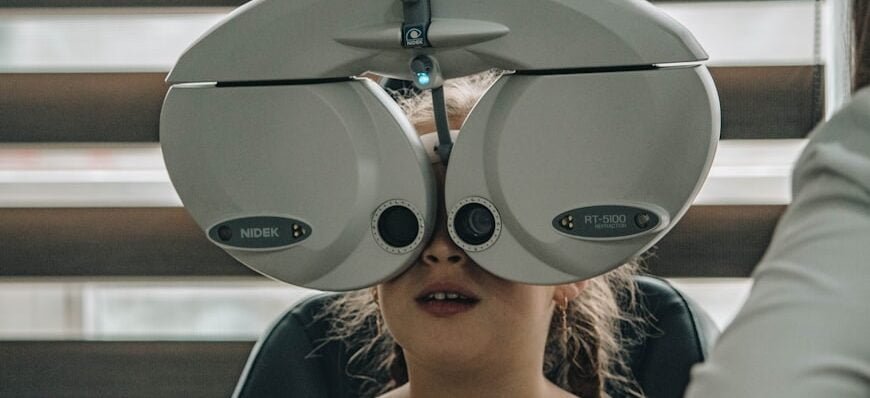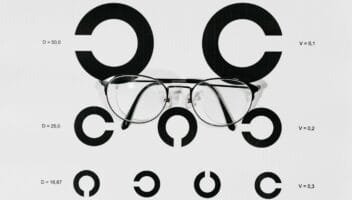Have you noticed your vision becoming blurry or cloudy? You might be experiencing the early stages of a cataract. A cataract is a clouding of the eye’s lens, which is the clear part of your eye that focuses light. It’s like a foggy window that obstructs your view of the world. While cataracts commonly develop as we age, factors like diabetes, smoking, and excessive UV exposure can also contribute to their formation.

Early cataract diagnosis is crucial for preserving your vision. By recognizing the symptoms and seeking timely evaluation, you can make informed decisions about treatment options. Let’s delve deeper into understanding the signs and causes of cataracts.
- Cataract Symptoms
- Cataract Causes and Risk Factors
- Cataract Diagnosis Process
- Cataract Treatment Options
- Cataract Prevention
- Conclusion
- FAQ About Cataracts
- Frequently Asked Questions About Cataracts
- What are the early signs of cataracts?
- Do cataracts always require surgery?
- Is cataract surgery painful?
- How long does it take to recover from cataract surgery?
- Can cataracts come back after surgery?
- Will I need glasses after cataract surgery?
- How much does cataract surgery cost?
- Can cataracts be prevented?
- Frequently Asked Questions About Cataracts
Cataract Symptoms
Recognising the Signs of Cataracts
Have you noticed a gradual decline in your vision? You might be experiencing the early signs of cataracts. While the progression of cataracts is often slow, it’s essential to be aware of common symptoms to facilitate early **cataract diagnosis**.
One of the most noticeable cataract symptoms is blurry or cloudy vision. It’s as if you’re looking through a frosted window. Also, as the cataract grows, this blurriness may worsen, making it difficult to perform daily tasks like reading or driving.
Another common symptom is increased sensitivity to light and glare. Bright sunlight, headlights, or even indoor lights can cause discomfort or difficulty seeing. You might also notice halos around lights, which can be distracting and impair your vision.
Color perception changes are another indicator of developing cataracts. Moreover, colors may appear faded or yellowed, diminishing the vibrancy of the world around you. Night vision problems are also prevalent, as cataracts can reduce your ability to see clearly in low-light conditions.
If you’re experiencing any of these cataract symptoms, it’s crucial to schedule a comprehensive eye exam. Early **cataract diagnosis** can help you explore treatment options and prevent further vision loss.
Cataract Causes and Risk Factors
What Causes Cataracts?
While the exact causes of cataracts aren’t fully understood, aging is the primary culprit. As we grow older, the proteins in the eye’s lens start to break down, forming cloudy clumps. This gradual change in the lens structure, thus, is a natural part of the aging process.
Risk Factors for Cataracts
Several factors can increase your risk of developing cataracts. Understanding these risk factors can help you take preventive measures.
- Diabetes: People with diabetes are more likely to develop cataracts at an earlier age.
- Smoking: Cigarette smoke contains harmful chemicals that can accelerate cataract formation.
- Excessive UV Exposure: Prolonged exposure to the sun’s harmful rays can damage the eye’s lens and contribute to cataracts.
- Medications: Certain medications, such as corticosteroids, can increase the risk of cataracts.
- Eye Injuries: Past eye injuries can contribute to the development of cataracts.
- Family History: If you have a family history of cataracts, you may be at higher risk.
By being aware of these risk factors and taking steps to protect your eyes, you can reduce your chances of developing cataracts.
Cataract Diagnosis Process
Comprehensive Eye Exam for Cataract Detection
If you’re experiencing **cataract symptoms**, it’s essential to schedule a comprehensive eye exam with an ophthalmologist or optometrist. Early **cataract diagnosis** is crucial for preventing vision loss and exploring appropriate treatment options.
During your eye exam, your eye care professional will conduct a series of tests to assess your overall eye health and determine if you have cataracts. One of the primary tests is a visual acuity test, which measures how well you see at different distances. This test helps determine if your vision has deteriorated due to cataracts.

A dilated eye exam is another essential part of the cataract diagnosis process. Your eye doctor will administer eye drops to dilate your pupils, allowing for a clearer view of the lens and other structures within your eye. Using a specialized instrument called a slit lamp, your doctor can examine the lens for signs of cloudiness or opacity, which are characteristic of cataracts.
In addition to these tests, your eye doctor may perform other examinations, such as tonometry to measure eye pressure or an assessment of your peripheral vision. These tests help rule out other potential eye conditions and provide a comprehensive evaluation of your eye health.
Remember, regular eye exams are crucial for maintaining good vision and detecting early signs of cataracts. Early cataract diagnosis empowers you to make informed decisions about your eye care and treatment options.
Cataract Treatment Options
Treatment Choices for Cataracts
Once a cataract has been diagnosed, your eye doctor will discuss the best treatment options based on the severity of your condition and your overall eye health.
For early-stage cataracts, you may not require immediate surgery. Non-surgical options can help manage symptoms and improve vision temporarily. These include:
- Updating your glasses prescription: A stronger prescription can sometimes help to compensate for the effects of cataracts.
- Increasing lighting: Brighter lights can make it easier to see, especially for people with cataracts.
- Using magnifying glasses or other visual aids:!These tools can assist with tasks like reading or close-up work.
- Anti-glare glasses or sunglasses: These can reduce glare and improve vision, especially at night.
However, as cataracts progress, they can significantly interfere with daily life. In most cases, **cataract surgery** is the most effective treatment to restore clear vision.
Cataract Surgery
Cataract surgery is a safe and common procedure that involves removing the cloudy lens and replacing it with a clear artificial lens called an intraocular lens (IOL). Advances in cataract surgery and the related surgical techniques have made cataract surgery highly successful, with minimal discomfort and a quick recovery time.

During the surgery, your eye doctor will make a small incision in your eye and use ultrasound technology to break up and remove the cataract. The cloudy lens is then replaced with an IOL, which helps focus light accurately on your retina.
Cataract surgery is typically performed on an outpatient basis, meaning you can go home the same day. Most patients experience a significant improvement in vision almost immediately after surgery. While there are potential risks associated with any surgery, complications from cataract surgery are rare.
Your eye doctor will discuss the benefits and risks of cataract surgery with you in detail, helping you make an informed decision about your treatment plan.
Cataract Prevention
Protecting Your Eyes from Cataracts
While you can’t completely prevent cataracts, adopting healthy lifestyle habits and certain eye health tips can help reduce your risk or delay their onset.
- Protect your eyes from the sun: Wear sunglasses with UV protection whenever you’re outdoors.
- Maintain a healthy diet: Incorporate plenty of fruits, vegetables, and antioxidants into your diet.
- Quit smoking: Smoking is linked to an increased risk of cataracts.
- Manage chronic conditions: Conditions like diabetes and high blood pressure can contribute to cataract formation.
- Regular eye exams: Early detection is key to managing cataracts effectively.
By taking these preventive measures and scheduling regular eye checkups, you can help maintain optimal eye health and reduce your risk of developing cataracts.
Conclusion
Cataracts, while a common part of aging, can significantly impact your daily life. However, advancements in ophthalmology have made their management and treatment highly effective. Early detection is crucial for preserving your vision and quality of life. Regular comprehensive eye exams are your first line of defense against vision loss.
By understanding the symptoms, causes, and treatment options for cataracts, you can make informed decisions about your eye health. Remember, maintaining a healthy lifestyle, including a balanced diet, regular exercise, and protection from harmful UV rays, can contribute to overall eye well-being.

Don’t let cataracts hinder your enjoyment of life. Take proactive steps to safeguard your vision. Schedule a comprehensive eye exam today and partner with an eye care professional to create a personalized plan for optimal eye health.
Call to Action
Don’t let cataracts cloud your world. Schedule a comprehensive eye exam today to detect and address any vision changes. Early detection and treatment can significantly improve your quality of life.
FAQ About Cataracts
Frequently Asked Questions About Cataracts
Cataracts are a common eye condition, and it’s natural to have questions about them. Here are some frequently asked questions to help you understand this condition better.
What are the early signs of cataracts?
Early signs of cataracts include blurry or cloudy vision, increased sensitivity to light, halos around lights, faded colors, and difficulty seeing at night.
Do cataracts always require surgery?
Not necessarily. In early stages, lifestyle changes and vision aids might help. However, as cataracts progress, surgery is often the best option to restore clear vision.
Is cataract surgery painful?
Most patients report minimal discomfort during and after surgery. Modern techniques and anesthesia help to minimize pain.
How long does it take to recover from cataract surgery?
Recovery time varies, but most people can resume normal activities within a few days. Complete healing may take several weeks.
Can cataracts come back after surgery?
While rare, it’s possible to develop a new cataract in the same eye or the other eye after surgery.
Will I need glasses after cataract surgery?
Many people still need glasses for reading or other specific tasks even after cataract surgery. The type of IOL implanted during surgery can influence your need for glasses.
How much does cataract surgery cost?
The cost of cataract surgery can vary depending on factors like the type of IOL chosen and insurance coverage.
Can cataracts be prevented?
While you can’t completely prevent cataracts, wearing sunglasses. Moreover, maintaining a healthy diet, and quitting smoking can help reduce your risk.
If you have more questions about cataracts or cataract surgery, don’t hesitate to consult with an eye care professional.




